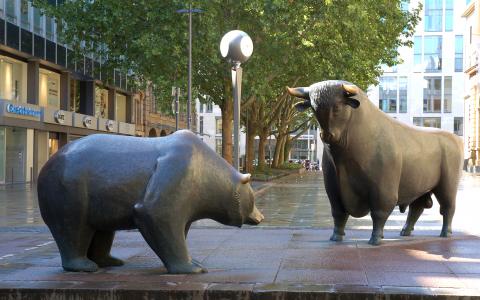
(MarketWatch) With a few weeks left of 2019, the S&P 500 is up 23% and on track for the best annual return since 2013. That shouldn’t be a big surprise, given the records just keep coming.
Onto our call of the day, from Citigroup’s chief U.S. equity strategist, Tobias Levkovich, who recently spoke to MarketWatch about the big hurdles he sees for stocks in the year ahead.
His first worry is based on a Federal Reserve survey of senior loan officers, in which banks report if they are easing or tightening credit conditions. When the report shows the latter, it tends to signal the economy will run into challenges in about nine months. He notes how January’s loan report of tighter conditions, was followed by manufacturing contraction in September.
“That same senior loan officer survey came out on November 4 and showed a tightening again, which means by August, September next year we’ll have some weakness again in industrial activity, which hurts earnings,” he said.
Levkovich’s second worry is that profit margin trends could fall next year, based on a lead margin indicator he looks at. Profit margins are a measure of profitability for a company.
His third concern has to do with the shape of the yield curve, which tends to give investors a sense of future interest rate direction. He believes it also signals volatility for stocks two years down the road, and is currently indicating “incremental volatility” in late 2020 to 2021, “which means usually the market falls back.”
One more thing to worry about in 2020? The U.S. presidential election, which could cause some uncertainty in the investment community, though that will depend on the polls and the candidates, he said.
As for where stocks will go this year, Levkovich, who has been one of the most accurate Wall Street forecasters this year, thinks there could be “some overshoot.” He lifted his S&P 500 target to 3,050 in September.
“We still think technicians and chartists may talk the market higher...there’s probably some upside, but probably a little less than there was as we just moved 7% in about a month,” he said.



